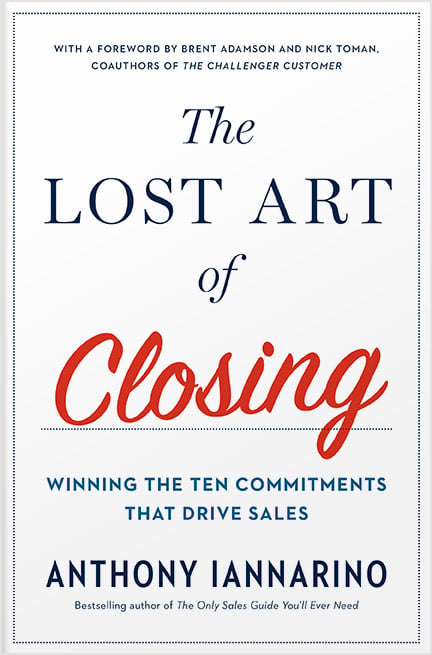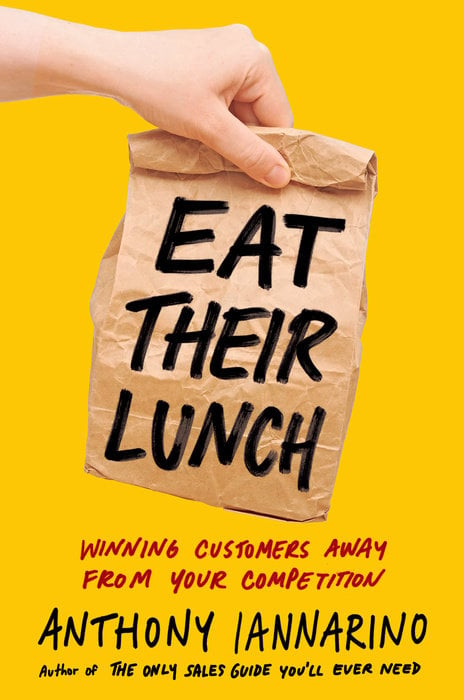The Gist
- Talking about your competition is tricky and can be harmful to your sales results.
- Any attempt to trash your competition only harms you and your chances of winning your prospective client’s business.
- You never need to say anything bad about an individual competitor, and you should probably avoid losing business to your competitors or any client who wants you to.
Some years ago, an assistant to an executive stole a recipe for Coca-Cola and offered to sell it to their rival, PepsiCo, for 1.5 million dollars. At the time, the companies were engaged in “The Cola Wars.” Rather than paying for the recipe, Pepsi immediately informed Coca-Cola, recognizing the value of intellectual property to the industry they share. The company’s values dominated their decision. Besides, what could Pepsi do with a recipe for Coca-Cola? Their business is built on the belief that they have a better soft drink.
In much the same way, you build your business on the belief that your insights, expertise, service, and solutions are better than your competitor’s. Be secure and confident in that belief, even when you feel like scoring cheap points at your rival’s expense.


Offering to Share Your Client’s Secrets
Every once in a while, someone asks me about enticing their dream client to take a meeting by revealing that the client’s competitor is already working with their company. The idea is to make your prospect want to learn what their competitor is doing differently, generally by hinting that the competitor now has a sizable advantage. (There is a certain type of prospect who would respond well to this sort of approach, but that should be a red flag when you’re choosing your future partners. That person would want you to go after Coca-Cola’s formula rather than imitating Pepsi’s professional integrity.)
The risk of this approach is that any salesperson willing to disclose what they are doing with the prospect’s competition might just as easily share their prospective client’s data with another company, as a way to gain new business at their expense. In a lot of cases, this approach will repel your prospective client, simply because it shows that you have no discretion and cannot be trusted with the information they share with you. There are better ways to create interest without causing your contacts to believe that you would trade their recipe for a few bucks.
Instead of offering to tell you can avoid losing business to your competitors sales your prospective client what specifically you are doing with their competition, you can simply say, “We have learned a lot about your industry over the last couple years, and we have some ideas that we believe will help you produce better results.” The difference here is that you are not saying a word about any one client, just emphasizing what you have learned by working in the prospect’s vertical. This approach safeguards your integrity and your values by promising both insight and discretion.
You might still need to sign a non-disclosure agreement with your prospective client, but your client should never believe that one would be necessary.


How to Speak About Your Competition
It is important that you differentiate yourself, your company, and your solutions from your competition. The worst possible way to do so is to confess your competitor’s sins—even if they are shady, sketchy, unscrupulous, and say mean things about puppies. You score no points by trashing even the trashiest of your competitors sales. The way you create a preference to buy from you is by creating greater value for your client in your conversations with them, not by talking about your competitor. In fact, a more professional approach will allow you to execute a strategy that eliminates whole categories of competitors in one fell swoop.
The one question that I have always resented goes something like, “Who are the two competitors in your space that we should consider if we don’t work with you?” The question is designed to trip you up by asking you to recommend your competitors.
The best way to talk about your competition is to say only positive things about them individually, while kindly and carefully eviscerating their delivery model. You might say something like, “There are a lot of good companies and good people in our industry. We know a lot of them. We have a lot of friends that work for other companies. They are good people, and they work hard. The only area where we have strong disagreements is on how to deliver the best results to our clients. We disagree on the model.”
Why eliminate a single competitor when you could attack the model and eliminate all of your competitors with a different model? It’s an easy pivot from suggesting that your model is different to explaining what differentiates your approach from your competitor’s approach, without ever having to say a bad word about them.
To execute this strategy, you have to be able to recognize and teach your client the different delivery models that companies choose to serve their clients. By doing so, you are not only teaching your client how to make a good decision but also delineating the factors your clients are going to need to consider. Even though this approach requires more of you than talking down your competitors, it is much more potent when it comes to competing and creating a preference to buy from you.


The Nature of Competitive Coexistence
What fun would it be to play the game with no competition? Competition is what causes—or should cause—you to up your game. You want your low-price competition to take care of the companies that are too cheap to pay for what you sell, at least until they recognize the higher costs they are incurring by paying too low of a price. When they finally understand that lower prices almost always come with a higher price, you’ll have an easier time acquiring their business.
I have personally been asked to give kickbacks in order to win a client’s business, as well as being asked to work with the direct competitor of a client and report what they’re doing differently. Stay far away from anyone who believes that you would sell your integrity, your character, or your reputation for money.
Do Good Work:
- Don’t offer to share what you do with a prospect’s competition as a way to compel a meeting.
- Refuse to speak poorly about your competition even if you have the dirt on them. Instead, eliminate categories.
- Never sell your integrity or character, regardless of the price.

Essential Reading!
Get my 3rd book: Eat Their Lunch
"The first ever playbook for B2B salespeople on how to win clients and customers who are already being serviced by your competition."
Buy Now







.jpg?width=768&height=994&name=salescall-planner-ebook-v3-1-cover%20(1).jpg)


